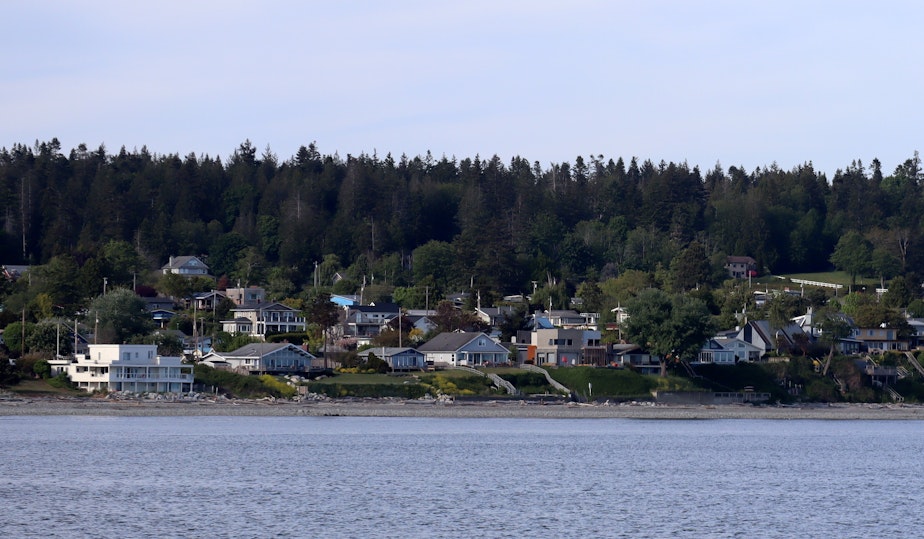After two years of isolation, Point Roberts is open for business — sort of

Point Roberts, Washington's famous exclave, is surrounded on three sides by water and on the last side by the Canadian border. If you want to get to the peninsula on land, you have to drive to Blaine and through British Columbia to drop back down onto U.S. soil.
So when the pandemic closed the northern border, the community of 850 residents was essentially cut off. Two years later, with the border the most open it's been since the pandemic started, there are slow signs of recovery — but some residents say more needs to be done.
Point Roberts is a popular summertime destination. Just a few square miles in size, "The Point" sees tens of thousands of Canadian tourists each year, many of whom trek in for the beautiful beaches and esoteric American goods, along with cheaper parcel pickups and gas prices. But that all changed when the Canadian border closed to prevent the spread of Covid-19.
"I remember exactly where I was, what I was doing when they announced the border closure," said Ali Hayton, owner of the International Market, the only grocery store in Point Roberts. "And my first response was, thank God it's March and not July, because summer's our busy time and when we hoard everything away for our lean winters."
The two years since then have felt like one drawn out winter, with the northern border reopening for vaccinated travelers last November. At the time, those going to Canada also needed a recent negative Covid test — though that requirement was dropped in April.
There are some return travelers now, but Hayton says that the current protocol for crossing the border is still dissuading visitors.
"For two years I'd pull into the store and be happy if I saw five or six cars that weren't my employees," Hayton said. "If I look out the window, I've got 20-25 cars. My lot holds 200. We're nowhere near where we used to be."
While summer tourism is a big economic driver in Point Roberts, it isn't the only tie The Point has with Canada. Utilities like water, electricity, and septic all run through British Columbia.
"Seventy-five percent of our properties are owned by Canadians," said Brian Calder, president of the Point Roberts Chamber of Commerce. "Ninety percent of our economy — our golf course, our marina, our parks, our camping — 90% comes from British Columbia.
"Basically, British Columbia, in a sense, owns us — we just didn't give them the keys."
Calder is vocal about wanting to see changes in the current border situation. Early on in the pandemic, Point Roberts had a special designation to allow essential workers through the border. That designation was changed when the border opened in November. Travelers now use a system called "ArriveCan," a digital application that tracks the health information of those crossing the border.
Each time someone wants to cross, they need to fill out ArriveCan. Calder said that many of the trade workers contracted out from Canada see this process as cumbersome and are choosing to avoid business in Point Roberts as a result. He is asking for an exemption from ArriveCan so the community can catch up on backlogged construction and renovation projects and to help stimulate the economy more broadly.
"There are some restrictions that are allowing very few people there to come in because they don't want to go through this hassle of ArriveCan," Whatcom County Executive Satpal Sidhu explained. "We believe that it should be lifted sometime soon."
Sidhu also voiced his support of an ArriveCan exemption for Point Roberts, though any decisions would need to be approved by the federal governments in both Canada and the United State.
Hear Soundside's full conversations with Brian Calder and Satpal Sidhu by clicking the audio above.





